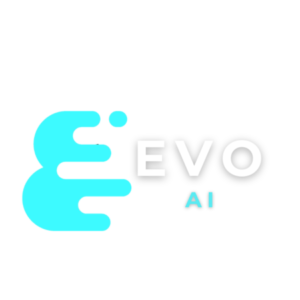
SambaNova’s Samba-CoE v0.2 Surpasses Databricks DBRX in AI Performance

Elon Musk’s Grok-1.5 Nears GPT-4 Performance
Other AI News
-
SydeLabs Secures $2.5M to Pioneer Intent-Based AI Security Solutions
SydeLabs, a California-based startup, has secured $2.5 million in seed funding to develop a real-time, intent-based firewall aimed at protecting businesses from the unique vulnerabilities posed by generative AI technologies. With the backing of RTP Global, Picus Capital, and other angel investors, SydeLabs sets itself apart in the AI security space by offering a comprehensive suite of solutions designed to safeguard large language model (LLM) applications throughout the entire project lifecycle, from development to deployment. The startup’s innovative approach focuses on identifying and mitigating a wide range of vulnerabilities, including those less known, thereby ensuring the security of generative AI systems against potential exploits by malicious actors.
SydeLabs’ product lineup includes SydeBox, a self-service red-teaming solution currently in beta, which allows teams to test AI applications and models for vulnerabilities; SydeGuard, an intent-based protection system; and SydeComply, a tool for addressing compliance issues. These products aim to provide robust security measures by detecting and preventing various attack vectors such as prompt injections and data leaks, while also offering solutions for compliance with global regulations. With over 10,000 vulnerabilities identified across more than 50 applications and models since its launch, SydeLabs is rapidly advancing towards commercialization, planning to offer SydeBox for free to enterprises and monetize SydeGuard through a consumption-based model. This funding round marks a significant step for SydeLabs as it aims to enhance its R&D efforts and tech stack to stay ahead of cybersecurity threats in the evolving landscape of generative AI.
-
Jamba: AI21 Labs’ Hybrid Model Aims to Revolutionize Generative AI Efficiency
AI21 Labs is pushing the boundaries of generative AI with its new approach called “Jamba,” aiming to enhance the capabilities of transformer models, which have been a staple in AI development since the influential 2017 research paper “Attention is All You Need.” Jamba, a blend of the Mamba model based on the Structured State Space (SSM) model and traditional transformer architecture, seeks to marry the strengths of both approaches, offering optimized generative AI models under an open-source Apache 2.0 license. While not intended to replace transformer-based large language models (LLMs) outright, Jamba shows promise in outperforming them in generative reasoning tasks, as evidenced by benchmarks like HellaSwag, though it currently falls short in other areas such as problem-solving on the Massive Multitask Language Understanding (MMLU) benchmark.
AI21 Labs, which has focused on developing gen AI for enterprise applications, including the Wordtune service, sees Jamba as a significant departure from its Jurassic-2 LLM family. By addressing the limitations of transformers, particularly in handling long context windows and reducing memory footprint, Jamba’s hybrid model offers a 256K context window and three times the throughput on long contexts compared to similar models. This innovation, which utilizes a Mixture of Experts (MoE) model within its hybrid structure, allows Jamba to operate more efficiently by activating only a fraction of its total parameters during inference. As AI21 Labs plans to introduce Jamba on its platform as a beta, this development represents a step forward in making AI models more versatile and efficient, particularly for applications requiring extensive context understanding.
-
Microsoft Enhances Azure AI with New Tools for Safer, More Reliable Generative AI Applications
In response to growing concerns about the safety and reliability of generative AI, Microsoft has announced the introduction of new Azure AI tools designed to mitigate risks associated with large language models (LLMs). These tools aim to address issues like automatic hallucinations and security vulnerabilities, including prompt injection attacks, which can manipulate models to generate sensitive or harmful content. The new offerings, currently in preview, include Prompt Shields, which employ advanced machine learning algorithms and natural language processing to analyze and block malicious prompts and third-party data. These tools will be integrated with Azure OpenAI Service, Azure AI Content Safety, and Azure AI Studio, enhancing the security framework for developers working with generative AI applications.
Beyond safeguarding against prompt injections, Microsoft is also focusing on enhancing the reliability of generative AI apps through features like prebuilt templates for safety-centric system messages and Groundedness Detection. The latter uses a custom language model to identify inaccuracies in text outputs, aiming to ensure that outputs are safe, responsible, and data-grounded. These tools, which will be available in Azure AI Studio and the Azure OpenAI Service, represent Microsoft’s commitment to building trusted AI by providing developers with the means to create more secure generative AI applications. This initiative not only underscores Microsoft’s dedication to advancing AI safety and reliability but also positions the company as a leader in developing secure AI solutions for enterprises.
-
Activeloop Secures $11M in Series A to Revolutionize AI Data Management with Deep Lake
Activeloop, a California-based startup, has successfully raised $11 million in Series A funding to further develop its innovative database technology, Deep Lake, designed to streamline AI projects by efficiently leveraging unstructured multimodal data. Founded by Princeton dropout Davit Buniatyan, Activeloop’s Deep Lake technology stands out for its ability to significantly lower the cost of creating AI applications—by up to 75% compared to other market offerings—while simultaneously boosting engineering productivity fivefold. This technology addresses the critical challenge many enterprises face: efficiently utilizing complex datasets, including text, audio, and video, for training AI models. With the potential of generative AI to generate trillions in global corporate profits, as highlighted by McKinsey research, Activeloop’s work is crucial for enterprises aiming to harness their data for a variety of AI applications, from customer support to content creation and software development.
Deep Lake by Activeloop uniquely standardizes the storage of complex data like images, videos, and annotations into ML-native mathematical representations (tensors), facilitating seamless streaming to deep learning frameworks such as PyTorch and TensorFlow. This approach not only eliminates the need for extensive boilerplate coding and integration but also optimizes the data for AI model training by streaming it directly from cloud-based or local storage to GPUs. Activeloop’s technology, which began as a solution for storing and preprocessing high-resolution brain scans at the Princeton Neuroscience Lab, has evolved into a robust database platform with both open-source and proprietary functionalities, including advanced visualization tools and a performant streaming engine. With over a million downloads of its open-source project and adoption by Fortune 500 companies across various industries, Activeloop is set to use the new funding to expand its enterprise offering and engineering team, aiming to further simplify data organization and retrieval for AI applications.
-
OpenAI’s Voice Engine: A New Frontier in Ethical Voice Cloning Technology
OpenAI has introduced a preview of its Voice Engine, a cutting-edge tool designed for cloning voices responsibly. After two years of development, this technology allows users to generate a synthetic copy of any voice from just a 15-second sample. However, OpenAI has not yet announced a public release date, emphasizing the need to carefully assess the technology’s use and potential misuse. The Voice Engine, which underlies the voice capabilities in ChatGPT and OpenAI’s text-to-speech API, has been trained on a mix of licensed and publicly available data. Despite the controversies surrounding the use of copyrighted material for training AI, OpenAI maintains that it has taken steps to ensure compliance and respect for intellectual property rights.
The Voice Engine stands out for not being trained or fine-tuned on user data, focusing instead on generating speech through a combination of diffusion processes and transformer technology. This approach aims to produce high-quality speech without the need for custom models for each speaker. While voice cloning technology is not new, OpenAI’s implementation promises higher quality and more affordable options compared to existing solutions. However, the technology also raises ethical concerns, particularly regarding the potential for misuse in creating deepfakes or impacting the livelihood of voice actors. OpenAI is taking steps to mitigate these risks, including limiting initial access to the technology, watermarking generated audio for traceability, and exploring additional security measures to ensure informed consent from voice donors.
-
Space and Time: Pioneering Data Transparency in the AI and Blockchain Era
In the rapidly evolving AI and blockchain landscapes, the demand for data transparency and verifiability has never been higher. Space and Time, a web3 startup, is stepping up to address these challenges. Drawing parallels between the manipulation of financial records, as seen in the FTX collapse, and the broader issue of data manipulation across industries, Dykstra emphasizes the critical need for mechanisms to ensure data integrity. He advocates for the use of zero-knowledge proofs (ZK proofs), a cryptographic method that allows for the verification of information without revealing the data itself, as a solution to these challenges. This approach is particularly relevant in scenarios where there’s a high incentive for manipulation, offering a way to verify data, prices, and financial records securely and transparently.
Space and Time aims to serve as a verifiable computing layer for web3, indexing data both off-chain and on-chain, with the vision of extending its services beyond the blockchain industry. The startup has already indexed data from major blockchains like Ethereum, Bitcoin, and Polygon, among others, and plans to support more chains to facilitate the future integration of AI and blockchain technology. However, Dykstra raises concerns about the current state of AI data verifiability, highlighting the need for a decentralized, globally accessible database that cannot be monopolized or censored. He envisions a future where such databases are community-owned and operated, ensuring open access and preventing censorship. This decentralized approach, according to Dykstra, is essential for maintaining data integrity and transparency in the age of AI and blockchain.
-
Skyflow Secures $30M to Fuel Growth Amidst AI-Driven Privacy Demand
Skyflow, a company specializing in data privacy, has successfully raised $30 million in a Series B extension round led by Khosla Ventures. This funding comes as a significant boost, particularly in light of the company’s pivot to accommodate the burgeoning AI market. Last year, Skyflow expanded its offerings to support new AI technologies, which has evidently paid off, with AI-related software becoming a substantial part of its business. The company, which initially focused on storing personally identifying information (PII) through its API, has seen its revenues from large language model (LLM)-related usage skyrocket from 0% to about 30%. This growth underscores the increasing demand for data management services, driven by the data-intensive nature of LLMs and the need for stringent data privacy and governance in the era of AI.
The decision to raise additional capital at this juncture reflects Skyflow’s strategic expansion and adaptation to global data residency regulations, including extending its support to China’s specific data rules. Despite the round being smaller and labeled as an extension rather than a new series, CEO Anshu Sharma emphasizes the importance of low dilution and the opportunity to accelerate growth. The funding round’s structure and naming also hint at the current investment climate, with Sharma noting a shift in investor behavior and the strategic alignment with Khosla Ventures, which recognizes the critical role of data privacy in corporate LLM usage. As Skyflow continues to grow, doubling in size last year with a 110% increase in revenues, it positions itself at the forefront of the AI-driven demand for data privacy solutions, offering a glimpse into the potential of the digital infrastructure supporting the AI revolution.
-
Google.org’s $20 Million Initiative to Propel Nonprofits into the AI Era
Google.org, the philanthropic arm of Google, has unveiled a new initiative aimed at bolstering nonprofits that are incorporating generative AI into their technological solutions. The Google.org Accelerator: Generative AI program is set to distribute $20 million in grants to an initial group of 21 nonprofits. Among these early participants are Quill.org, which is developing AI-powered tools to provide feedback on student writing, and the World Bank, which is working on a generative AI application designed to make development research more accessible. This accelerator program not only provides financial support but also offers the selected nonprofits technical training, workshops, mentorship, and guidance from designated AI coaches. Additionally, Google.org’s fellowship program will enable teams of Google employees to dedicate up to six months of full-time support to three of the nonprofits—Tarjimly, Benefits Data Trust, and mRelief—to assist in the development and launch of their generative AI tools.
These collaborations aim to address significant societal challenges: Tarjimly is focusing on AI-driven language translation for refugees, Benefits Data Trust is developing AI assistants to help caseworkers support low-income individuals in enrolling for public benefits, and mRelief is working on simplifying the application process for U.S. SNAP benefits. The initiative is grounded in the belief that generative AI can significantly enhance the productivity, creativity, and effectiveness of social impact organizations. Despite the potential benefits, many nonprofits face hurdles in adopting AI technology, including costs, resources, and time constraints. A survey highlighted by Google.org found that while a majority of nonprofits see AI as aligned with their missions and beneficial to their operations, nearly half are not using the technology due to various barriers. This program aims to lower these barriers, signaling a growing recognition of the importance of AI in the nonprofit sector and potentially increasing the number of nonprofit organizations exploring ethical and innovative uses of AI technology.
-
Amazon Completes $4 Billion Bet on AI Innovator Anthropic
Amazon has solidified its commitment to Anthropic, a leading AI company, by completing its planned investment of $4 billion. This move follows an initial investment of $1.25 billion, showcasing Amazon’s confidence in Anthropic’s potential or the lack of comparable investment opportunities. The investment was strategically made in exchange for a minority stake in Anthropic, coupled with agreements ensuring Anthropic’s continued use of Amazon Web Services (AWS) for its computational needs. This decision to maximize its investment just before the deadline indicates Amazon’s strategic positioning in the competitive AI landscape, where Anthropic’s AI models stand out for their high-level capabilities and scalability, rivaling those of OpenAI and Google’s Gemini.
The AI sector is becoming increasingly pivotal for tech giants like Amazon and Microsoft, which have opted to partner with leading AI firms like OpenAI and Anthropic rather than developing their own models. These partnerships have been mutually beneficial, allowing these tech giants to leverage the advancements in AI without the direct risk of innovation. Amazon’s decision to invest the full amount at Anthropic’s previous valuation suggests a strategic move to secure a stake at a potentially lower cost, reflecting the high-stakes environment of the AI industry. This investment not only underscores the importance of AI in the current tech ecosystem but also highlights the speculative nature of these investments, as companies place their bets on the future leaders of AI technology. As the AI landscape continues to evolve, Amazon’s significant investment in Anthropic will be a key factor to watch in the ongoing development and commercialization of AI technologies.
-
Databricks’ $10M AI Endeavor: DBRX Struggles to Surpass GPT-4
Databricks has ventured into the competitive field of generative AI with the introduction of DBRX, a model that mirrors the capabilities of OpenAI’s GPT series and Google’s Gemini, albeit with a significant investment of $10 million. DBRX, available for both research and commercial use on GitHub and Hugging Face, comes in two versions: DBRX Base and DBRX Instruct, which can be adapted to public, custom, or proprietary data. Despite being optimized for English, DBRX boasts the ability to interact and translate across multiple languages, including French, Spanish, and German. Databricks positions DBRX as an open-source model, a claim that aligns with the trend set by other companies like Meta with Llama 2 and AI startup Mistral, although the true open-source nature of these models is subject to debate.
The development and training of DBRX, which Databricks claims outperforms all existing open-source models on standard benchmarks, reflect a significant investment in generative AI technology. However, the practical use of DBRX poses challenges, particularly due to its hardware requirements, which are beyond the reach of many developers and small enterprises. Despite these hurdles, Databricks offers a managed solution, the Mosaic AI Foundation Model, to facilitate the use of DBRX and other models, emphasizing its commitment to making the Databricks platform a premier choice for customized model building. While DBRX is touted to run up to twice as fast as Llama 2 thanks to its mixture of experts architecture, it still falls short of GPT-4’s performance in most areas, except for niche applications. This situation underscores the ongoing challenge for Databricks and other companies in the generative AI space to match the capabilities of leading models like GPT-4, while also navigating the complexities of model accessibility, training data transparency, and the ethical use of AI technology.
-
0G Labs Raises Unprecedented $35M Pre-Seed for Revolutionary AI Blockchain Project
0G Labs, a web3 infrastructure company, has made a splash in the crypto and blockchain world by securing a staggering $35 million in pre-seed funding, a figure that far exceeds the norm for such early-stage ventures. Initially aiming to raise $5 million to develop its foundational technology, 0G Labs’ ambition quickly attracted a flood of interest, leading to an oversubscription by 20 times the original goal. The company, also known as ZeroGravity, is on a mission to create a modular AI blockchain designed to address the challenges faced by on-chain AI applications, such as speed and cost efficiency. This modular approach allows developers to customize their blockchain systems or applications with the necessary components, aiming to make blockchain as performant and cost-effective as web2 applications.
The founding team of 0G Labs, comprising Michael Heinrich, Ming Wu, Fan Long, and Thomas Yao, brings together a wealth of experience from previous ventures in blockchain, venture capital, and health and well-being services. Their vision for 0G Labs is to fill a critical infrastructure gap that would not only scale blockchain systems but also enable on-chain AI capabilities. The firm’s approach to decentralization, particularly in data storage and scalability, aims to support a wide range of applications, from deepfake detection to decentralized finance (DeFi), by providing a high-throughput, secure, and cost-efficient blockchain platform. With a planned mainnet launch in the third quarter of the year, 0G Labs aspires to be a public good that serves humanity by enabling new use cases and solving complex problems through its innovative blockchain technology.
-
Cyera Secures Up to $300M to Pioneer AI-Driven Data Security Solutions
Cyera, a cybersecurity startup, is gearing up to tackle what it perceives as the next significant challenge in enterprise data protection: artificial intelligence (AI). The company is in the final stages of securing a funding round close to $300 million, which would triple its valuation to $1.5 billion. This round is led by Coatue, a renowned venture firm, with participation from Accel, among others. This funding surge reflects the growing demand for AI-enhanced tools that Cyera develops, which help organizations gain a comprehensive understanding of data usage within their networks. Initially aiming for a modest $5 million to kickstart its technology, Cyera’s ambition quickly garnered an overwhelming response, indicating a strong market interest in its AI-focused cybersecurity solutions.
Cyera’s approach to cybersecurity, emphasizing AI’s role in both enhancing security measures and presenting new challenges, is particularly timely. As AI technologies become increasingly integrated into business operations, the potential for internal data breaches and violations of intellectual property and data protection policies grows. Cyera aims to address these risks by providing tools for data classification, posture management, detection and response, and access governance. The startup’s shift towards focusing on the implications of automation and AI in data management underscores the evolving landscape of cybersecurity, where AI is not just a tool for innovation but also a potential vector for vulnerabilities. With a significant increase in its valuation and backing from top-tier investors, Cyera is poised to play a crucial role in shaping the future of AI security in the enterprise sector.
-
Profluent: Pioneering AI-Driven Drug Discovery with Salesforce’s ProGen Legacy
Profluent, a new venture emerging from Salesforce’s ambitious ProGen project, aims to revolutionize the pharmaceutical industry by leveraging generative AI to design proteins and discover medical treatments. Founded by Ali Madani, one of the key researchers behind ProGen, Profluent seeks to invert the traditional drug development process by starting with patient and therapeutic needs and working backwards to engineer custom-fit treatments. This approach, which focuses on creating AI-designed proteins as medicines, could significantly reduce the cost and time associated with drug development. Madani, drawing on his experience at Salesforce’s research division, was inspired by the similarities between natural language processing and the “language” of proteins, leading to the development of generative AI models capable of predicting new proteins with novel functions.
Profluent’s mission extends to gene editing, aiming to address genetic diseases that cannot be treated with naturally occurring proteins or enzymes. By optimizing multiple attributes simultaneously, Profluent’s technology promises to create custom-designed gene editors tailored to individual patient needs. This innovative approach is supported by training AI models on vast datasets containing over 40 billion protein sequences, enabling the creation and refinement of gene-editing and protein-producing systems. Rather than developing treatments in-house, Profluent plans to collaborate with pharmaceutical companies to bring genetic medicines to market, potentially streamlining the lengthy and costly process of drug development. Backed by prominent investors, including Spark Capital and Google’s Jeff Dean, and facing competition from other startups in the AI-driven protein design space, Profluent is poised to make significant advancements in the intentional design of biological solutions.
-
Adobe Launches Firefly Services: Revolutionizing Content Creation with Generative AI APIs
Adobe has unveiled Firefly Services, a groundbreaking suite of over 20 new generative and creative APIs, tools, and services designed to revolutionize content creation for enterprise developers. This initiative opens up Adobe’s AI-powered features from its Creative Cloud tools, such as Photoshop, to developers, enabling them to enhance their custom workflows or devise entirely new solutions. Alongside Firefly Services, Adobe introduced Custom Models, a feature that allows businesses to fine-tune Firefly models with their own assets, integrated within Adobe’s GenStudio. Firefly Services is described as a comprehensive collection of generative AI and creative APIs aimed at automating workflows, including capabilities for background removal, smart image cropping, automatic horizon leveling in photos, and access to core AI-driven Photoshop features like Generative Fill and Expand.
The launch of Firefly Services and Custom Models marks Adobe’s commitment to providing brands with powerful customization capabilities and greater control over their automation processes. David Wadhwani, president of Adobe’s Digital Media Business, emphasized the growing consumer expectations for generative AI-driven personalization and Adobe’s role in transitioning generative AI investments from experimental phases to production. Adobe positions Firefly as a brand-safe alternative to other models, addressing enterprises’ concerns about brand safety while leveraging generative AI tools. This initiative is expected to significantly accelerate content creation workflows for brands, enabling them to produce and personalize marketing content at scale while adhering to brand standards. With Firefly, Adobe continues to be instrumental in the creative processes of companies, facilitating rapid generation of imagery and templates that align with brand standards and broadening participation in the creative process.
About The Author

Bogdan Iancu
Bogdan Iancu is a seasoned entrepreneur and strategic leader with over 25 years of experience in diverse industrial and commercial fields. His passion for AI, Machine Learning, and Generative AI is underpinned by a deep understanding of advanced calculus, enabling him to leverage these technologies to drive innovation and growth. As a Non-Executive Director, Bogdan brings a wealth of experience and a unique perspective to the boardroom, contributing to robust strategic decisions. With a proven track record of assisting clients worldwide, Bogdan is committed to harnessing the power of AI to transform businesses and create sustainable growth in the digital age.








Leave A Comment